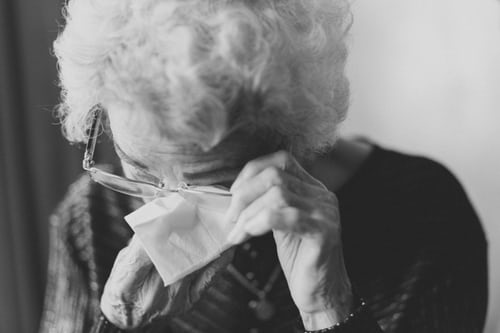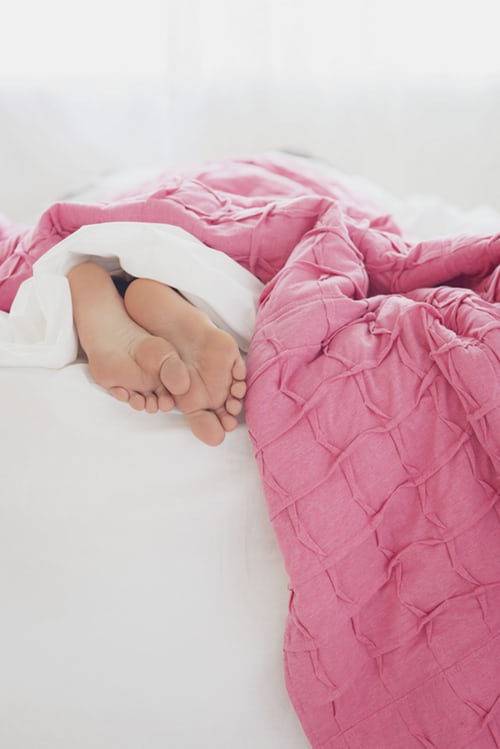Are you feeling a little post holiday-letdown melancholy? Today I’ll give you a tip on how to combat it.
I was feeling a whole lot of letdown. Because we’d been remodeling our home, the decorations and tree went up just days before Christmas, and then it all seemed to be over so soon. And I was trying to extend the festivities. The emotional, feeling part of them.
Our holidays were unexpectedly full and joyous, and I was still trying to live on the happy fumes. The house became eerily quiet after our kids and their wives and sweethearts departed. My heart ached over the feeling of loss, and I didn’t want to let go of their happy, energetic presence. Their spirits still lingered in the house.
But the outside world was busy moving forward and trying to drag me (and other reluctant earthlings) along with it. Even when I found myself out grocery shopping January 2, I was in a happy, festive mood. Everyone else in the store, though, seemed anxious and grumpy. The store was packed with edgy people, all getting in one another’s way. Couples were yelling at each other about taking too long to find a particular food.
When I arrived at the checkout counter, the young woman and I struck up a conversation. The topic of the stressed out and angry clientele came up. “I know,” she said. “It’s awful. I don’t like it. Everyone seems upset.” She went on to say how happy and relaxed she felt and the customers were chipping away at that.
And that was on January 2, the second day of the New Year!
The second grocery store I wound up shopping in was already hawking Valentine’s Day chocolates, not too far from their deeply-discounted Christmas ware. Home improvement stores were already displaying their spring and summer items.
But I’m determined to ease into 2020 a bit more slowly and intentionally divest myself of the holiday trappings.
So last week, I took some action.
While some of our decorations were beginning to disappear from our shelves and walls, the Christmas tree was still full. And I decided to use it to my advantage last Thursday.
My intentional retreat day—
I had planned a full-day retreat, a day to seek God’s direction. To read, pray, sing, praise and zero in on life and where I was headed—or should be. Not just for this year, but potentially for the next five to seven years, or entire decade (since we just started a new one).
I originally had a grandiose idea of going to a local botanical garden, to wander along their winding desert paths and sit on a bench to read and write in my journal. I thought the peaceful surroundings would give me just the jolt and inspiration I needed to receive a word from the Lord.
But my budget and unexpected cold, cloudy and windy weather disrupted those plans. So I enjoyed a warm-up sojourn around our hilly neighborhood and then settled down in our library with my Shetland sheepdog, Dolly, in front of our library fireplace.
And I turned on the Christmas tree lights to add an atmosphere of joy and promise.
The results—
After a day of reading voraciously, praying, and filling pages of my journal, I finally felt ready to bid adieu to the holidays, tuck the precious memory of them into my hart, box up the tree and ornaments, and step firmly into the new year, and decade.
What a retreat day can do for you—
Taking that time helped me focus and open myself up to possibilities and hope. It helps you slow down, extract yourself from the world and its incessant, tiresome demands, and focus on the important stuff. I would highly recommend to everyone that they take a retreat day before we get too much further into the year and other demands or allow well-meaning people take you in directions you hadn’t planned on, or shouldn’t be going.
The time leaves you refreshed and excited. Content. More focused, purposeful and intentional. And that gives you a feeling of control, something so important to our emotional well-being.
Now my husband is trying to figure out when he can take his own personal retreat day, something that always recharges his emotional, spiritual and physical batteries.
Planning and taking your own personal retreat—
- Try to block out an entire day. But if you don’t have the luxury of a full day, then block out a 4-hour time period in the morning or afternoon.
- Turn off your smart phone and stash it someplace where it won’t be a distraction or temptation. Turn off your computer and any other electronic devices.
- Make sure you’re by yourself and won’t have to endure interruptions. If you have babies at home, hire a babysitter and head out to a favorite place to enjoy your retreat, preferably someplace quiet. Ask your spouse to take care of the kids for a day. If you’re choosing a Saturday, have your husband/wife take the kids to the zoo, the movies, or a kids’ museum so you can retreat uninterrupted. You need to be able to focus on what God’s saying to you without worrying about distractions.
- Grab your Bible, journal (or notebook/paper), and a pen, prayer beads, and anything else that will help you focus on God, your relationship with Him, and the direction he wants you to take this year.
- Write down the activities that make you happy, the ones that really recharge and satisfy you. Make a mental note of doing more of those this year. Pencil them into your calendar for January to get a kick-start.
- Identify your strengths and weaknesses, and brainstorm how you can utilize your strengths and dilute your weaknesses.
- Make some notes on the tremendous blessings in your life, including people, events, work, etc. Thank God for those.
- Identify the things in your life that are time-wasters and energy-drainers. What are you doing just because someone else wants you to do it, or because you feel guilty if you don’t. If you must do them for a good reason—like maintaining the family finances or health—ask God to give you a heart for them. Otherwise, make a point of releasing yourself from these wheel-spinning activities.
- Identify what areas of your life you could change in order to give yourself more freedom and joy. Does your home need a thorough run-through, to throw out old clothes, unread and will-never-read books, and dust-gathering knickknacks that don’t fall into the family heirloom category. How can you simplify your life, and what can you do to achieve that goal?
- Identify those people in your life that you’d like to spend more time with and develop a plan on how to achieve that goal. What individuals or groups do you want to nurture friendships with?
- Choose any area of your life and pray about how you might make it more enjoyable or prosperous.
- Identify areas God wants you to expend your energies. Remember that His yoke is easy and His burden is light!
- Pick out some Bible verses to pray, personalize, and write down, and post in conspicuous places in order to remind you of your focus.
Will all of your plans come to fruition by December 31? Probably not, but as God reminds us, people perish without a vision.
Our (my husband and my) year will be focused on getting out of all debt, gaining freedom and preparing for retirement in the next five to seven years. For us, that means we have to forgo our coveted travel (even to the Northwest to visit our boys and daughter-in-law).
Since travel is one of our high-priority activities, it’s going to be tough. But we’re already looking forward to the possibilities and rewards, and are experiencing a new sense of freedom and control. It’s triggering ideas for alternative, scaled-down, budget-friendly activities. And it’s a great place to be in a marriage.
Now it’s your turn. You’ve got 18 days left in January. Pick out a day and get refreshed through a retreat! Face this year with joy, promise and expectation.
Until next week,
May your new year, and decade, get off to a great and promising start!
Andrea
Andrea Arthur Owan, M.S., A.T., R., is an award-winning inspirational writer, fitness pro, and chaplain. She writes and works to help people live their best lives — physically, emotionally, and spiritually.




